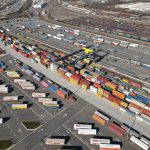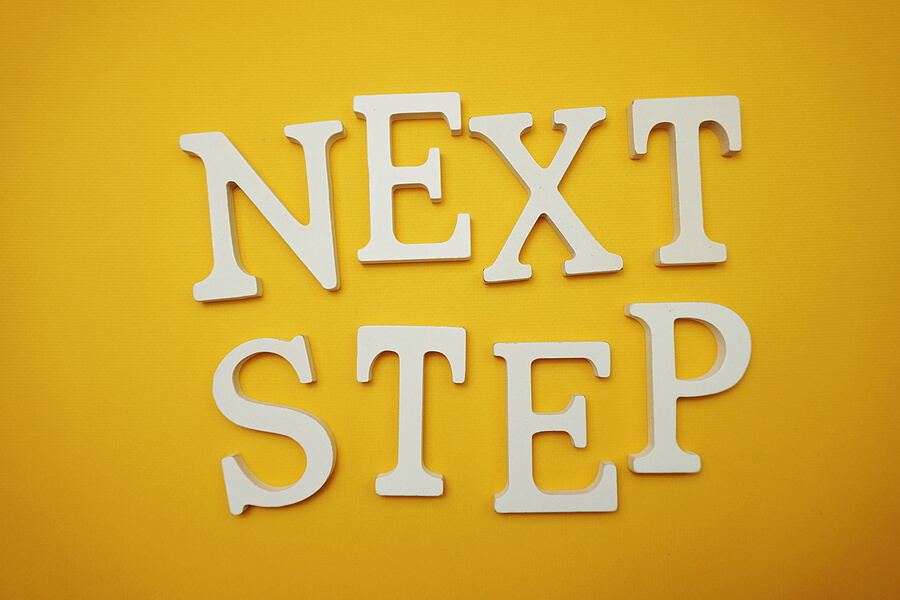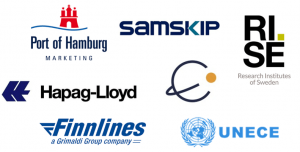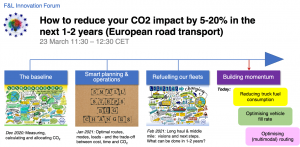Global transport contributes 25% of global greenhouse gas emissions, forecast 33% by 2050. This implies the sector – and its current commercial leaders – have a responsibility to tackle decarbonisation with a greater sense of urgency. But how? Practical sessions, solutions-focused & confidential to those participating – we tackle core questions:
6 Sept 2023 – 14:00 – 14:45 CET, online

Can the rail / intermodal sector match increased shipper interest and, if not, why not? Are there positive case studies to mention? Pace of change is building as the 2025/30 window looms larger in the headlights. Rail & intermodal play an important part in the transition and there is pent-up shipper demand.
With Tarmac, Russell Transport, CFL Multimodal, UIRR & shippers, we looked at:
 12-13 May 2022
12-13 May 2022As the freight logistics horizon shifts in front of our eyes, how is the race to success changing? F&L’s international network of senior business leaders met in Luxembourg: centre of Europe, intercontinental logistics hub in the heart of the blue banana & formerly one of the world’s largest steel producers.
 7 April 2022
7 April 2022Scope 3 – know your footprint & the footprint of your supply chain partners?
Trafigura, IKEA, Heineken & others discuss knowing your footprint as well as learning, status and shortcomings to date by trying to collect scope 3 data. Questions were absolutely welcome and the session was not recorded.
Sustainable transformation: financing transformation for logistics leaders

This is a session for logistics leaders who are not financial experts; how can we finance our transformation, market KPIs and (re)covering the costs ahead? Experts and market leaders shared practical examples and insight.
Sustainable transformation: the 2022 agenda
We summarised the urgent European policy agenda & discussed whether industry should decarbonise ahead of regulation or whether it would be better to wait?
Next topics will include:
F&L Conference hosted by United Nations
Holcim, Tata Steel, Unilever, Brambles, SAP, Suez Recycling & Recovery and an international transformation expert discussed, moderated by Alan McKinnon KLU & Philip Evans F&L with commentary from Thammasat Business School (Thailand)

Companies leading the net positive and regenerative supply chain revolution & discussion on what we have learned this year, and where we intend to go next. How can we trigger development of the right initiatives and end-to-end thinking?
Transport & logistics nodes: mitigating the effects of supply chain imbalances on the port maritime ecosystem

CO2 optimisation in transport & logistics nodes


Multimodal stakeholders and ports are creating value for port users & other stakeholders by working together to minimise environmental impact & synchronise end-to-end supply chains. With customer service levels to meet and port infrastructure currently bursting at the seams, ports, innovators and shippers explain how they are creating value with environmental impact and hinterland connectivity strategies.
Lifting the fog: experts & practitioners put hydrogen into perspective for the freight & logistics sector
All modes, Europe 1-2 years focus – how might hydrogen be part of the fuel mix for freight & logistics? Concrete examples. Who is doing what, and next steps? Infrastructure and distribution of hydrogen, hydrogen myths, and challenges for today and tomorrow including retrofitting vs new fleet costs.
Refuelling our fleets. Reducing CO2 in European road transport (4 of 4)


How can a global shipper decarbonise its supply chain while creating value for itself and its customers? P&G Global Transport Sustainability explains a new multi-strand framework for achieving results together. What do we need to do, who should be involved, and what are the next steps?
Refuelling our fleets. Reducing CO2 in European road transport (3 of 4)
Smart planning & smart operations. Reducing CO2 in European road transport (2 of 4).
Practical solutions to bring you results in the short term, with a focus on short term profitability and service benefits from reduced carbon emissions. Topics included smart operations, less air, multimodal, bundling, loading and routing. Impact on emissions can be 20%.
Contacts & slides in members’ area
The baseline: measuring, allocating & calculating CO2 in European road transport (1 of 4).
Challenging questions included can innovative solutions for CO2 reduction be reflected in our existing CO2 frameworks? How detailed and specific should insight in our CO2 footprints be, to work on stepwise improvements? Are we likely to end up with a single CO₂ accounting standard we should follow, or multiple options? What tools / principles should a shipper aim to use to get set up for understanding, measuring & communicating CO₂? Can progress be incremental or does it have to be a “big bang” solution? What CO₂ statistic will get my executive Board’s attention? How do I find & measure that statistic?